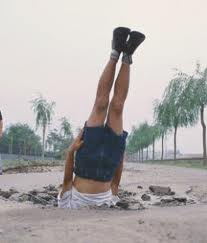That is simply wrong. Martial ARTS are a whole approach to protecting body, mind, and spirit. Corny I know, but true. If a person has never been taught the things you mention, and I will include virtue, discipline respect, etc... I can understand that they do not understand, but I do not agree with it. If you want to make anything better, your MA, your family, yourself, the world, these principals cannot be left out. If you want to learn how to fight without a filter that is your prerogative but you have to know there are implications.


